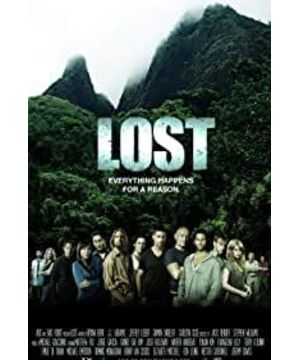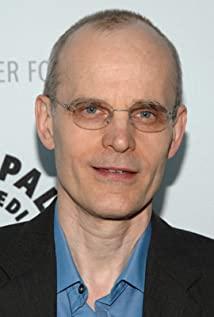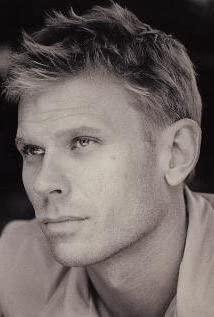Anyone who is familiar with the history of German thought knows that the idealist tradition in Germany, from Hegel, Fichte, and Schelling down to the phenomenological tradition of Husserl, has constructed a huge absolute self, the transcendental consciousness of the self, and the self-consciousness of the self. A phenomenological reduction of the world. In short, the self is absolutely real, and how the self can access others is questionable. Later Schmidt introduced it into political philosophy and analyzed politics as a kind of enemy-friendly logic. In other words, the possibility of political existence lies in the existence of "borders". Inside the border is "us" and outside is the "enemy". Without the "enemy", "we" would not be a community. This logic profoundly influenced neoconservatism. This is the first hidden clue in the lost. People are on isolated islands and cannot survive without unity, so Hobbes' ghost is here; if people are not constantly infested by the others, they don't need to unite and fight, so Schmidt's ghost is also wandering here .
The second hidden thread concerns the understanding of free societies. The American understanding of a free society is a society with clear boundaries, each with its own responsibilities and clear goals. The boundaries are clear and each performs its own duties, which can be seen from the separation of powers, the demarcation between law and morality, and the dichotomy between the public and private fields. What is the purpose, to ensure the freedom of the individual, to allow the individual to realize his ideal of life. Therefore, any event that calls for individual sacrifice in the collective name is suspicious. The state is a collective, and the function of politics is to protect rights and allocate resources. So the perfectionist ideal of the state was rejected, and its notorious versions were National Socialism in Germany and Stalinism in the Soviet Union. Therefore, there is still a struggle on this small Pacific island, that is, the struggle between a totalitarian society and a free society. The first to the island was a group of scientific madmen who were stationed in secret for conducting scientific experiments. A group of modern people (mainly Westerners, but also a group of Korean couples) branded with the idea of freedom accidentally fell. The former represents a totalitarian concept of self-sacrifice for so-called higher purposes, such as those who cut off contact with the outside world and their families, and can use people as experimental objects for scientific experiments, etc.; the latter is an accident reach out to free individuals in this totalitarian society. The encounter between the two groups, the mutual penetration is very interesting, at least a good thought experiment.
Lost reminds me of a conference paper I wrote in October. In that article, I discussed the issue of political neutrality. A central idea of contemporary liberalism, as expressed by Rawls in Political Liberalism, is that the state remains neutral among different ideas of the good, without evaluation or ranking. This is seen as a respect for individual liberty and dignity, giving each person the freedom to develop their talents and shape their own lives. The one-sidedness of this view is criticized in my article, and my criticism is not principled, but background. In my opinion, if the state does not provide some elevating good, such as art, moral value, or even technology, then the choice of the individual will tend to be mediocre, like holding a menu without delicious dishes. The state should create the conditions for the richness of individual life, just not interfere with the final choice of each individual. In other words, the government has a responsibility to make the menu as rich as possible, but what you order is your personal choice, and what kind of life you live is up to you.
This criticism is still shallow in my opinion. In fact, in modern Western society, the debate on perfectionism is not limited to the state or government. For example, there are now many independent institutions willing to fund scientists to conduct stem cell research. The Bush administration has repeatedly opposed legislation or funding for the legality of this research, which is seen as moral conservatism. A recent breakthrough in stem cell research, in simple terms, is that stem cells can be grown from somatic cells rather than egg cells. Leaving aside the issue of human cloning for the time being, in fact, this series of studies are all geared towards the perfectionist human ideal. Since the progressivist narrative of the Enlightenment, individuals and nations alike have had an expectation of a better tomorrow. This ideal is projected on people, that is, people become more perfect, so as to live a happier life. Those who reject the political perfectionism are based on such a simple reason that each individual is too different, and the national perfectionism will put different pressures on them, so that the will of the few has raped the will of the majority. . This is associated with a strong quest for equality, and in Rawls's words, any contingent factor, such as gender, race, or even luck, is immoral. But we all know that it is these most contingent factors that play the most significant role in our lives. However, as a kind of fair politics, distributive justice should exclude the influence of such factors as much as possible, and even give reverse compensation, such as universal medical care system, welfare assistance system, etc. But a free society is never content with just one value, or one ideal. People like Nietzsche would say that equality is the weapon of the weak, and freedom is the paradise of the strong. Therefore, society is subject to various tensions, and it resolves them through some institutional arrangements, such as using sports events to satisfy people's appreciation and desire for the best, using the minimum wage to help those in distress, and using equal opportunities to motivate the great Most of the middlemen.
What Lost enlightens us is what will we do once this institutional arrangement is no longer available and we can choose again? As individuals with an identity, how can each of us be constrained by our past life experiences, and how can we arrange our future if it is fraught with risk and uncertainty?
View more about Lost reviews











